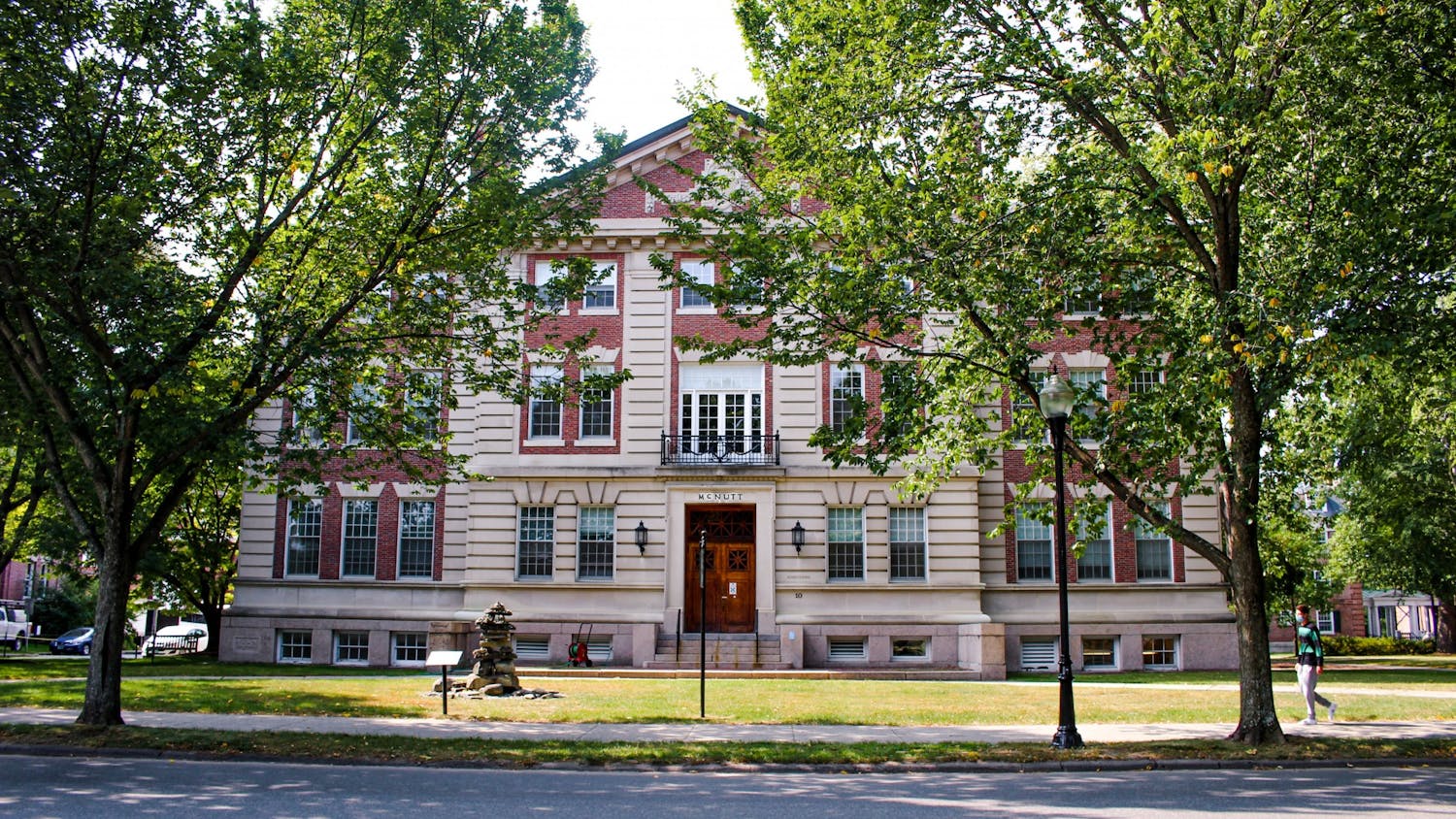The first thing a student entering Saturday's Second Annual Not-For-Profit Career Fair would notice was the loud buzz of conversation. In every booth, employers were explaining their ideas, hopes and plans while telling students how they could make nonprofit work a career. Information, whether in the form of exhibits, brochures or personal experiences, was everywhere.
According to Career Services intern Vinny Ng '03, who was one of the people responsible for planning the fair this year, the purpose of the event was "to give non-profits more of an opportunity to reach out to students and let them know what opportunities are out there."
Another goal was to change misconceptions about not-for-profit organizations, Ng added, saying "the biggest one I hear is about not being able to support yourself going in to non-profits."
The event's opening panel discussion helped address this topic.
Opinions varied on how much money someone could make in a nonprofit. Alexandra Allen, executive director of City Year New Hampshire, said "you're definitely going to survive. When you get together with your friends, you aren't going to have the wardrobe they do, but hopefully you'll be doing what you want to."
John Hawking, a founder of nonprofit ISP ValleyNet and other non-profits, disagreed, saying "you can tie in your need to prove yourself economically with your need" to make a difference.
The panel also discussed what life was like within a nonprofit, saying that although non-profits vary greatly in size and resources, many had a small budget and spend a lot of time raising money.
Asked about how to get a job with a nonprofit, panelists described an environment much less cutthroat than in the corporate world, with directors very open to outside interest and willing to point interested people in the direction of other organizations that may interest them.
The panel had a lot to say about the personal rewards of working for a not-for-profit organization. Allen, for example, highly praised the people she worked with.
Cecilia Eguia, a human resources officer at the International Rescue Committee, said in comments echoing those of the other panelists, "just believing in what I do each day makes a difference -- that's what motivates me."
According to Kate Knight '01, who created the first nonprofit career fair last year, the event was started because "it should never be a choice between taking care of yourself and doing something good."
This was reflected in the career fair's slight shift towards what is being called "social entrepreneurship" -- organizations that apply businesslike models to social purposes and are often funded more regularly by businesses or philanthropic organizations than other non-profits.
"Something the non-profits always had was inspiration. What they've lacked is the bottom line," said Knight. "It's a sector where Dartmouth people can apply their education. It's not the traditional soup-kitchen direct service ... which doesn't tap in to your intellect."
Of the fair in general, Knight said "the best part is seeing alums behind the counter." Knight said there was a feeling that the College was recognizing that students who got involved in non-profits were as important as those who went into corporate careers.
This tied in with one goal Career Services Director Skip Sturman cited during the panel discussion -- to change the perception of Career Services as an office that funnels Dartmouth students into consulting or investment banking jobs, and the perception of on-campus recruiting as "corporate" recruiting.
Other shifts since last year, according to Knight, included a more professional feel about the fair -- including its move to the Top of the Hop from Collis Commonground.



